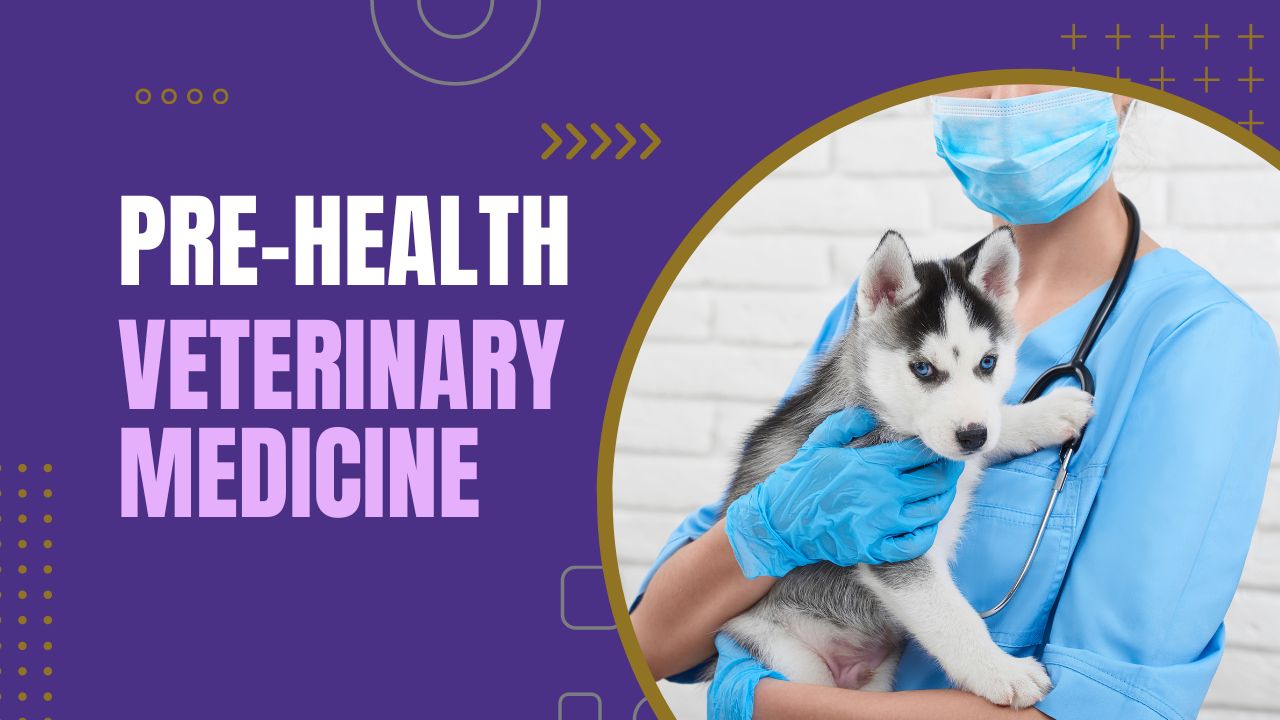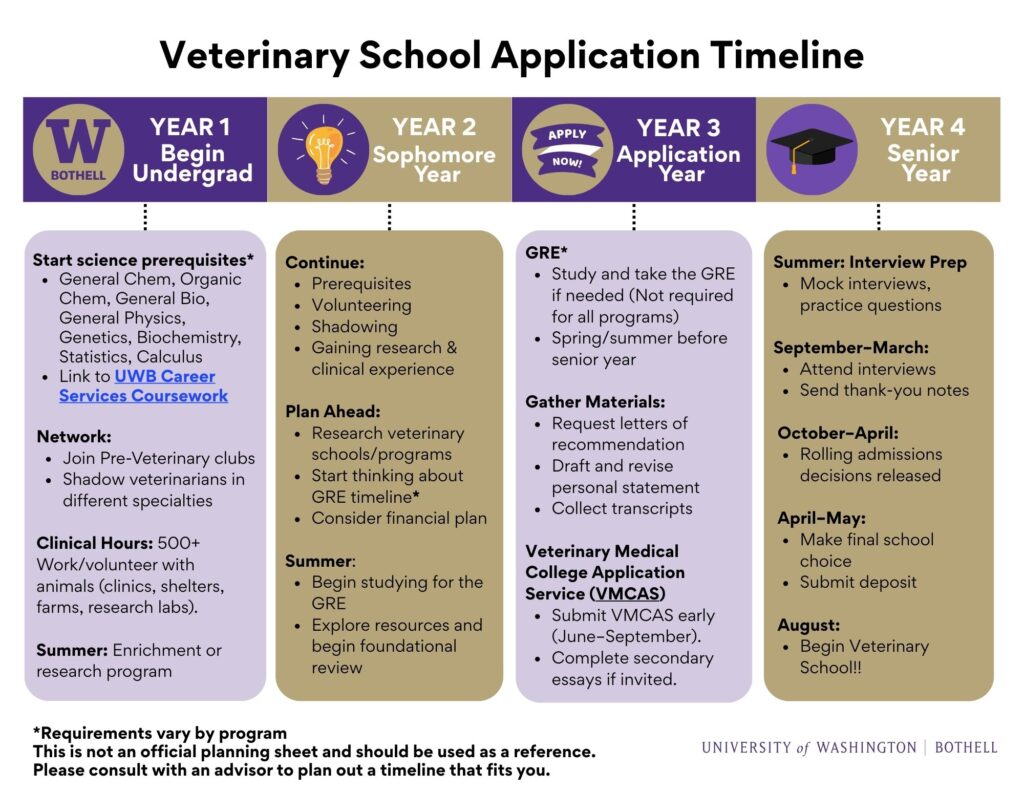Veterinary Medicine

Overview
Veterinarians are highly trained medical professionals who provide for the health and quality of life of all kinds of animals. Preparing yourself to apply to the veterinary schools of your choice involves completing veterinary school prerequisite courses, getting good grades in all of your courses, gaining experience in the field (through work, volunteering, and shadowing), and taking the entry exam.
As a Pre-Veterinary student, you can major in anything. There is not a specific major that all Pre-Veterinary students must have. Veterinary schools care that you do well in your major and in your Pre-Vet coursework. Think about what interests you and what will best prepare you to be the best veterinary care provider you can be.
Application
Visit the Apply page for more on prerequisite coursework and grades, transcripts, activities, personal statements and letters of recommendation in general.
Application Timeline
Requirements vary by program. This is not an official planning sheet and should be used as a reference. Please consult with an advisor to plan out a timeline that fits you.

- Start science prerequisites: General Chem, Organic Chem, General Bio, General Physics, Genetics, Biochemistry, Statistics, Calculus based on placement/prior coursework – UWB Career Services Coursework
- Network: Join Pre-Veterinary clubs, shadow veterinarians in different specialties
- Clinical Hours: Gain work/volunteer with animals (clinics, shelters, farms, research labs)
- Summer: Enrichment or research program – Applications due in January/February – UWB Getting Experience
- Continue: Prerequisites, volunteering, shadowing, gaining research & clinical experience
- Plan Ahead:
- Research veterinary schools/programs – Map of Veterinary Schools
- Start thinking about GRE timeline (if needed)
- Consider financial plan
- Summer: Begin studying for the GRE, explore resources and begin foundational review
- GRE: Study and take the GRE if needed (Not required for all programs)
- Spring/summer before senior year – Gather Materials: Request letters of recommendation, draft and revise personal statement, collect transcripts
- Veterinary Medical College Application Service (VMCAS)
- Submit VMCAS early (June–September)
- Complete secondary essays when invited
- Summer: Interview Prep – Mock interviews, practice questions
- September–March: Attend interviews, send thank-you notes
- October–April: Rolling admissions decisions released
- April–May: Make final school choice, submit deposit
- August: Begin Veterinary School!!
Resources
VMCAS (Veterinary Medical College Application Service)
Most veterinary schools will conduct interviews as part of the secondary application process. Students are advised to prepare for their interviews by scheduling a mock interview with the Health Professions & Natural Science Pathways Manager. Students should also become familiar with the type of questions that may be asked during their interview.
- AAVMC (Association of American Veterinary Medical Colleges)
- Veterinary School Admission 101 (AVMA – American Veterinary Medical Association)
- Directory of Veterinary Schools